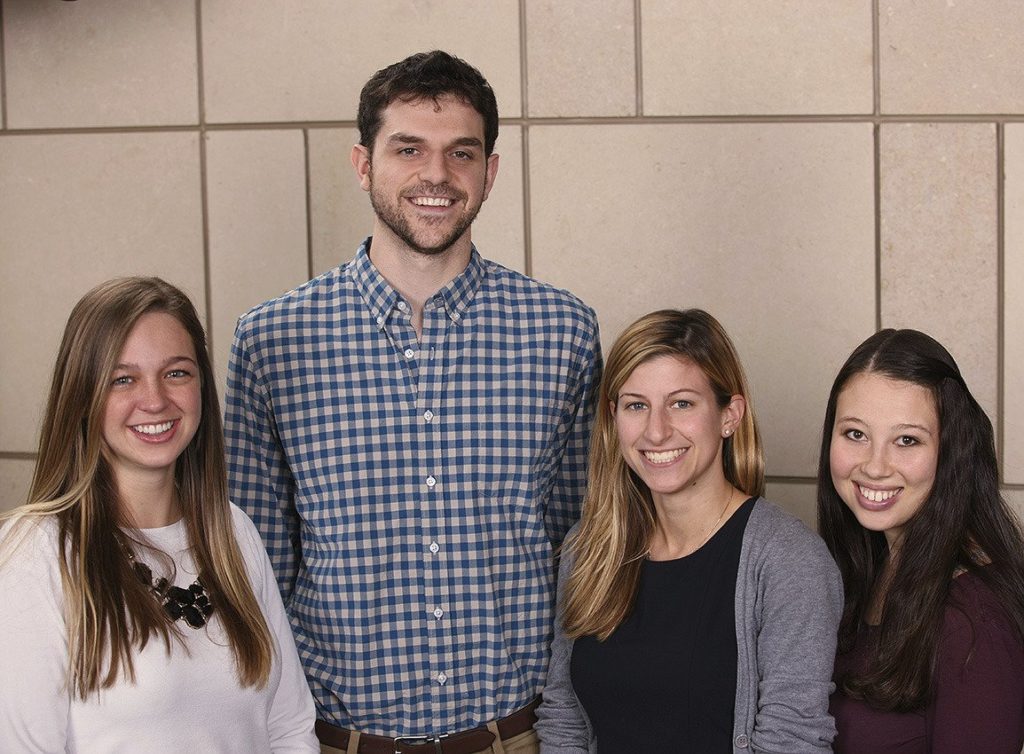Stanford Law School Students to Hear Case Before U.S. Supreme Court

Students from Stanford Law School’s Supreme Court Litigation Clinic are in Washington, D.C., with Professor and Clinic Co-Director Jeffrey Fisher, who will argue a case before the U.S. Supreme Court on Monday. The students spent the fall quarter assisting Fisher with background research and drafting the respondents’ merits brief for the ONEOK, Inc. v. Learjet, Inc.
Brittany Jones, JD ’16, Gary Dyal, JD ’15, and Jenna Williams, JD ’15, will be in the courtroom with Fisher on Monday, when he addresses the issue of whether the Natural Gas Act preempts state-law claims challenging industry practices that directly affect the wholesale natural gas market. Alison Karol, JD ’15, who also worked on the case, did not make the trip, but will be watching it with interest.
Fisher will argue on behalf of commercial and industrial gas consumers, led by Learjet, against major energy producers, including ONEOK, who are seeking to overturn an April 2013 decision by the Ninth U.S. Court of Appeals that would allow antitrust suits filed under state laws to proceed. The case pits some of the nation’s largest natural gas vendors against their customers.
“The students have worked extremely hard, and that shows in the quality of the brief,” said Fisher, who has argued before the Court more than 20 times. “We’re looking forward to seeing how the Justices react to it.”
Brittany Jones said she was “very, very grateful” she was able to work on a SCOTUS brief. “For a law student, that kind of opportunity is rare,” she noted. She felt the chance to work on a piece of writing with other collaborators was especially valuable. “As a law student, you get to work on a lot of things on your own, and get the feeling of exclusive ownership. Working as a group is more like what attorneys really do.”
“The legal research and writing experience will be very valuable as I enter my legal career,” said Jenna Williams. “The issue is very complex, and I think doing the research and writing for it will make me much more able to confidently dive into and understand new legal topics in the future.”
The Supreme Court Litigation Clinic, which was the first of its kind at any law school, is one of 11 clinics currently offered at Stanford Law School. Students enrolled in a clinic spend a full academic quarter working on real cases with real clients, with no other distractions. In recent years, the clinic has represented clients on issues including federal anti-discrimination laws, the Fair Labor Standards Act, criminal defendants with constitutional claims, public interest and trade associations, the free exercise of religion, bankruptcy law and the Voting Rights Act.
